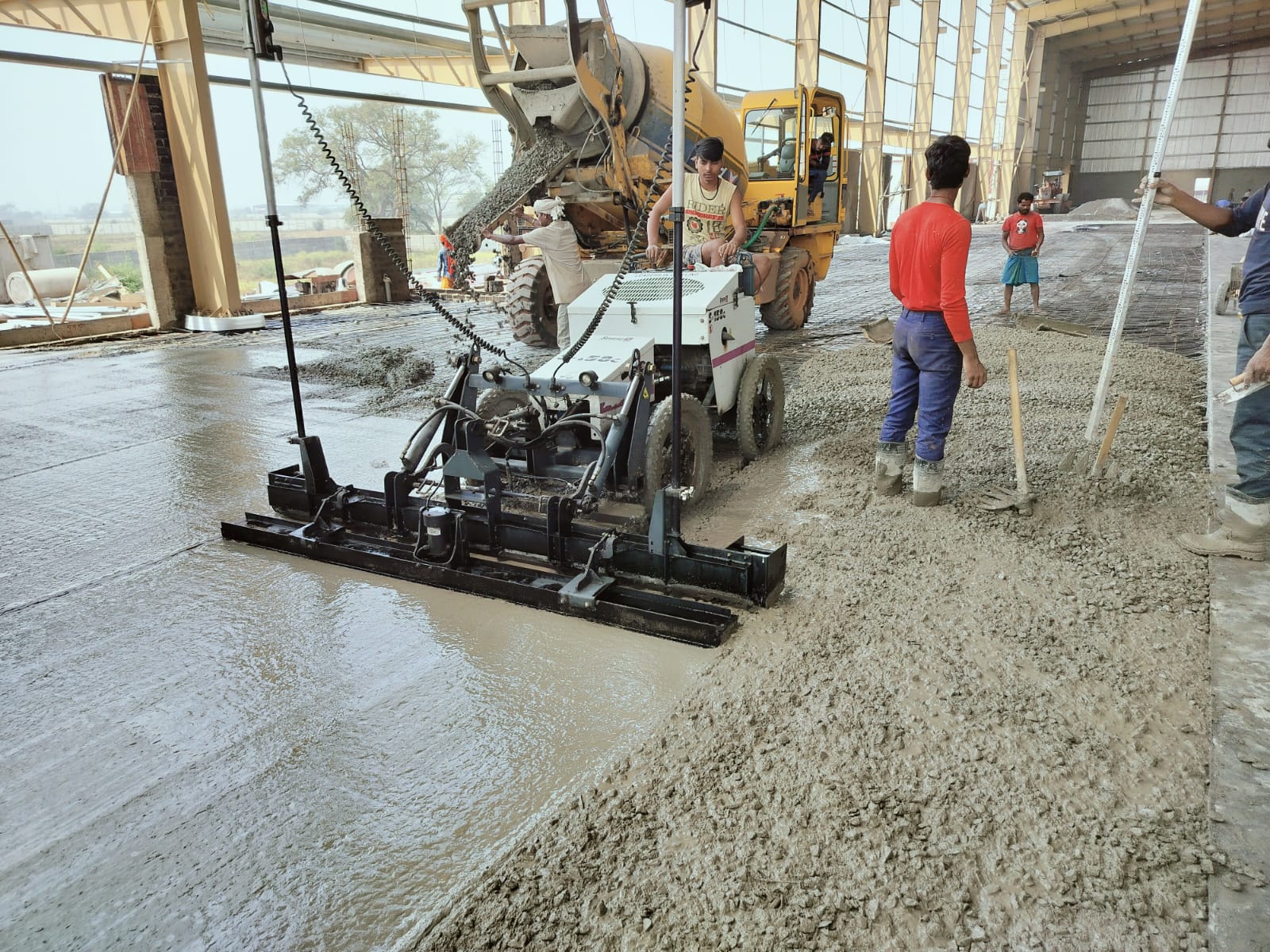
Environmental Impact of FM2 Flooring
In today's world, sustainability has become a top priority for every industry, starting from construction, manufacturing even flooring management. FM2 flooring is an advanced and innovative approach to floor management and installation that is able to bring various benefits that add value to the client as well. Alongside that, it's essential to consider the environmental impact that can ensure ecological aspects and a great connection between the community and the environment. This blog delves into the environmental Implications of FM2 flooring, highlighting both positive contributions and the areas that require significant attention.
A Positive Environmental Contribution of FM2 Flooring
Efficient use of materials
FM2 equipment is specially designed for precision and efficiency. Hence, automated cutting and placement help to reduce material waste efficiently. Comparing traditional flooring with innovative ways can result in considerable offcuts and scraps which end up in landfills. That is why we optimise material usage by using FM2 systems, ensuring that nearly every piece of flooring is used effectively.
Energy efficiency
Midas Concrete Floor Solutions is one of the pioneers in FM2 systems using equipment that is built with energy efficiency technology. Our experts use these machines that consume less power compared to traditional machines and less advanced models. Alongside that, we have brought key innovations while ensuring concrete flooring solutions such as energy-efficient motors and smart power management systems that significantly contribute towards a lower overall energy footprint while installing the flooring.
Reduction of harmful emissions
The flooring industry traditionally involves processes that can release harmful volatile organic compounds (VOCs) and other pollutants. We are using FM2 flooring technology such as advancements in adhesive application and finishing techniques. As a result, we have identified a significant reduction in emissions of these harmful substances. In spite of that, our experts recommend using more environmentally friendly adhesives and sealants that further minimise VOC emissions.
Sustainable material options
FM2 flooring systems are increasingly compatible with sustainable flooring materials, starting from bamboo and cork to reclaimed wood. We at Midas Concrete Floor Solutions prioritise sustainable practices while working and have significant concerns for saving the planet. Focusing on that, we are using materials that are renewable and have a lower environmental impact compared to environmental options like hardwood or synthetic materials. Increasing awareness of using sustainable materials may build eco-friendly surroundings.
Extend longevity and durability.
We are more focused on floors installed using FM2 technology, which is often more durable due to the precision and quality of the installation process. Longer-lasting floors mean fewer replacements and repairs, which translates to reduced resource consumption and waste over time.
Areas of environmental concern
Manufacturing Footprint:
The production of advanced FM2 flooring equipment itself can have a significant environmental footprint. Manufacturing these high-tech machines involves the use of metals, plastics, and other materials, which can be resource-intensive. Additionally, the energy consumption during the production process and the potential for hazardous waste generation are factors that need careful management.
End-of-Life Disposal:
When FM2 flooring equipment reaches the end of its lifecycle, proper disposal or recycling becomes a concern. These machines contain electronic components, batteries, and other materials that can be challenging to recycle. Being reliable concrete solutions providers our experts always ensure that FM2 equipment is disposed of responsibly and, where possible, recycled is crucial to minimising its environmental impact.
Resource-Intensive Materials:
While FM2 flooring promotes the use of sustainable materials, it still relies on certain resource-intensive materials for the equipment itself. Metals, rare earth elements, and specific polymers used in the machinery can have significant environmental footprints associated with their extraction and processing. Focusing on that, our team is always determined to use polymers or metals at least to ensure environmental safety and better connection with the community. Alongside that, we are also transitioning to renewable energy sources for powering these machines to further mitigate their environmental footprint.
Steps Towards Greater Sustainability of Concrete Flooring
Eco-friendly manufacturing practices
Ensuring sustainability in business is the biggest aspect of success in the contemporary business environment. Midas Concrete Floor Solutions has decided to adopt greener initiatives in the most possible areas of business operation. Our team members are majorly using recycled materials while working, reducing energy consumption in production and implementing waste reduction strategies. Furthermore, increasing investment in cleaner technologies and renewable energy sources makes a significant difference between us and others.
Life Cycle analysis and design
We conduct comprehensive life cycle analyses of FM2 flooring equipment under the presence of experts that help to identify areas for improvement in sustainability. Designing equipment with recyclability in mind and using modular components that can be easily replaced or upgraded can extend the lifespan of the machinery and reduce waste.
Sustainable Flooring Materials
Continuing to promote and develop sustainable flooring materials that are compatible with FM2 technology is crucial. The research and development team put significant efforts into enhancing the durability and performance of eco-friendly materials, making them more attractive and viable options for a wider range of applications.
Conclusion
In conclusion, the environmental impact of FM2 flooring is multifaceted, encompassing both positive contributions and areas for improvement. While FM2 technology brings significant advancements in efficiency, precision, and sustainability, it is essential to address the environmental challenges associated with its production, operation, and disposal. By adopting greener manufacturing practices, promoting the use of renewable energy, and continuing to innovate in sustainable materials, the flooring industry can move towards a more sustainable future with FM2 flooring at the forefront.
